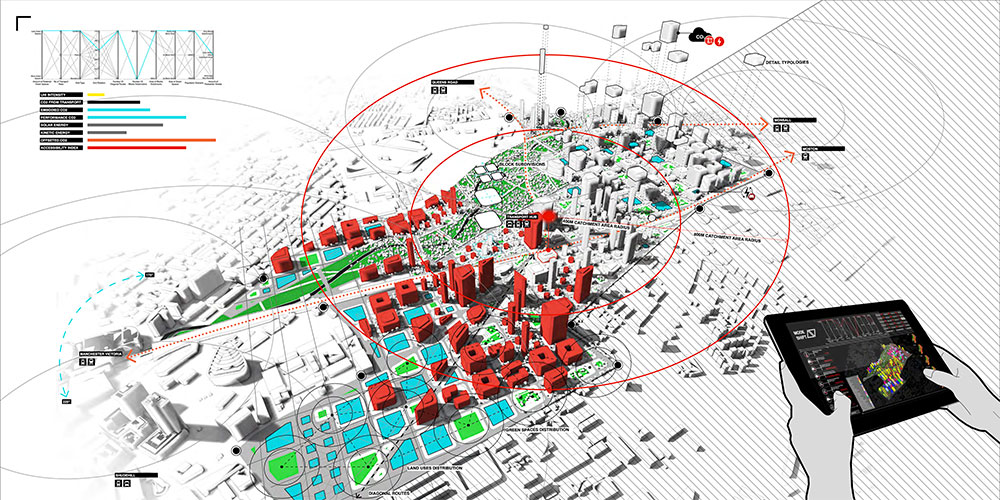[CPU]ai is a post-graduate master’s atelier in the Manchester School of Architecture exploring the emerging possibilities from AI, Big Data, Machine Learning, and computational design towards more sustainable Future Cities. Instead of limiting the study of emerging urban phenomena to conceptual starting points for design, students explore the possibility of expanding their design process and methods to engage with the complexities of urban transformation through deeper cognition of computational possibilities. Our approach explores data-driven design, generative design processes, performance analysis, and computer simulation. It is situated within a Design Science framework referencing both a science of design and design as a science. Herbert Simon’s description of design as a study of the ‘artificial’ aimed at changing existing situations into preferred ones through the development of artefacts links our development of new computational tools (#codeyourowntools) to the design of desirable futures.
Students translate methodologies explored in the [CPU]lab – an externally funded research laboratory working on Smart Cities, urban IoT, CAVs and sustainable infrastructures – into experimental computation-based design approaches with an understanding of complex systems. Urban theories addressing social-sustainable-technological transitions and spatio-temporal urban transformations frame cities as dynamic systems and sub-systems that include spatial, social, and technological dimensions. Novel design approaches are required to address the complex, multiscale, temporal and emergent phenomena that constitute the contemporary urban process.
This year [CPU]ai explores ‘Zero Carbon Future Cities’ through a partnership with Manchester City Council on the Victoria North development impacting on 35,000 people. Projects anchored in scientific approaches to calculate energy use and emissions position future designs in a metric embedded process involving the generation and assessment of multiple future possibilities. Designs variously address accessibility, building performance, embodied carbon, transport, consumption, lifestyle, demand, satisfaction, health and air quality. Engagement with multiple sustainability areas through design is enabled by a step-by-step process within which students learn computational skills (e.g. BIM, modelling, visual programming, python coding, game engines, XR, etc.) in parallel with computational design and urban theories. Graduates contribute to an evolutionary process for the profession towards future practice.


